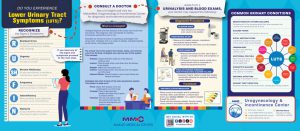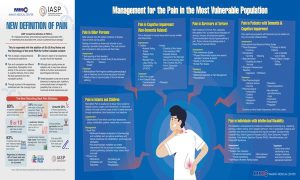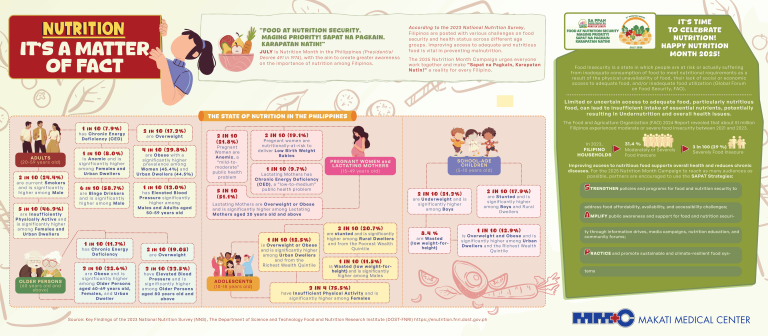The birth of a child is always a memorable occasion, but that becomes even more special for first-time parents. For nine (9) months, expectant couples count to the day of their baby’s arrival, excited to see and be with their little bundle of joy while also preparing themselves for the responsibilities of parenthood.
Indeed, the process leading to the baby’s delivery can be rather grueling for soon-to-be parents, especially the mother. While carrying the baby in her womb, the mother has to receive prenatal care to ensure both of them are healthy. Regular prenatal care is crucial in preventing any complications from affecting the pregnancy.
Learn what prenatal care is and how it contributes to delivering a healthy baby in this infographic.
What is prenatal care?
A form of health care, prenatal care refers to looking after the well-being of pregnant women and their developing babies. As such, prenatal visits include physical checks, blood and urine tests, and other types of medical screening to ensure the health of the mother and her baby.
When to See a Healthcare Provider for Prenatal Visits
The doctor will schedule the expectant mom for a series of prenatal checks for the duration of the pregnancy. Prenatal visits are a good time for the parents to ask questions about the pregnancy and the upcoming birth of their baby.
In general, the first prenatal care visit happens once the mother discovers that she is pregnant or she thinks she might be. Here, the doctor will perform a thorough check on the mother’s physical health, including her height, weight, and blood pressure. It is also likely the doctor will recommend laboratory tests and physical exams such as a breast exam, pelvic exam, and Pap smear test, among others.
The succeeding visits for someone receiving prenatal care may be scheduled:
- Every four (4) weeks until the 28th week or one (1) prenatal visit in a month
- Every two (2) weeks until the 36th week or one (1) prenatal visit every two (2) weeks
- Every week until delivery or one (1) prenatal visit every week
If the mother is pregnant with twins, the doctor may schedule prenatal visits more often and recommend ultrasound tests between visits. The goal is to monitor each baby’s growth and supply of amniotic fluid, a key component of the babies’ life support system.
Important Factors in Prenatal Care
Prenatal care comes with tremendous value, as it offers holistic medical care for pregnant women and their babies. Not only does prenatal care focus on medical checkups and screening tests, but it also involves educating mothers about the different aspects of pregnancy, which are equally important in delivering a healthy baby.
As such, prenatal care activities and discussions with the healthcare provider also focus on the following areas:
Nutrition: Proper diet and nutrition are essential during pregnancy, as babies’ nourishment depends on their mothers. Healthy eating enables the mother to consume essential nutrients to pass to the developing baby. Depending on the mother’s health status, the doctor may suggest dietary adjustments such as avoiding or eating more of certain foods.
Sleep: An expectant mother is prone to feeling tired more quickly due to the baby’s growth and other changes happening inside their body. Sleep is one way to let the mother’s mind and body recover from pregnancy-related stress or fatigue and feel more relaxed.
Weight gain: It is common for pregnant women to put on extra weight coming from the baby, the placenta, the amniotic fluid, and stored fat, among others. Here, weight management is vital for a healthy pregnancy and safe delivery. However, weight management in pregnancy aims not to lose weight but to ensure that the mother is neither underweight nor overweight.
Exercise: Exercising during pregnancy helps promote weight management, improved sleep, and higher energy levels—all of which can contribute to a healthy body before, during, and after childbirth.
Hydration: Expectant mothers need more water than the average person to carry nutrients to the placenta and help form the amniotic sac and fluid. Moreover, it prevents pregnancy complications brought about by dehydration.
Vitamin and mineral supplements: Besides following a nutrient-rich diet, taking prenatal vitamins and minerals can contribute to excellent health for the mother and her child. Doctors typically prescribe supplements that contain calcium for bone and muscle development, iron for hemoglobin production, and folic acid for proper development of the central nervous system.
How to Stay Healthy During Pregnancy
Regardless if the family is expecting their first child or not, pregnancy can be easier to navigate with the adoption of these healthy habits:
Maintain a healthy diet
Pregnant mothers would do well to stick to a balanced diet composed of meat or meat substitutes, grains, healthy dairy, fruits, and vegetables when planning meals. Since pregnancy symptoms like nausea or vomiting can affect the mother’s appetite, knowing what foods trigger them can help the pregnant body cope better.
Take prenatal vitamins daily
Prenatal vitamins boost the supply of essential nutrients for both the mom and her baby, especially if the mother is not getting enough of them in their daily diets. Ideally, pregnant women should take folic acid at least 400mcg/day, 600mg of calcium, and 30mg of elemental iron.
Avoid certain foods such as raw meat, alcohol, and caffeine
A healthy pregnancy diet does not only include the best foods to eat but also avoids food items that can cause harm to pregnant individuals:
- Raw or undercooked meats — The bacteria or parasites found in these foods can cause infections or illnesses, potentially leading to stillbirth, miscarriage, or organ damage for the baby.
- Caffeine — The risk of miscarriage may increase with excessive consumption of caffeine, including coffee, tea, and soda. Decaf or caffeine-free alternatives and limited amounts of chocolate can be an option, depending on the doctor’s advice.
- Alcohol — Passing along consumed alcohol to developing babies can have dire consequences on their physical and mental health.
Do not smoke
For many women who smoke, conceiving a baby gives them the perfect reason and motivation to quit the habit. The nicotine in cigarettes is not in any way good for the baby but instead poses risks, including premature birth, low birth weight, and sudden infant death syndrome (SIDS).
Get moving
Staying active helps in weight management during pregnancy, not to mention that healthy activities like exercise are mood boosters. From walking to swimming and yoga, there are several types of exercises that are safe for pregnant women. The key is to incorporate even 10-minute routines that let someone get up and move about into their daily schedule.
Drink more water
The general rule of thumb for the average person is to drink eight (8) glasses of water a day. However, pregnant women need more, so they have to drink at least ten (10) glasses of water per day and 13 if breastfeeding. That includes water coming from food sources such as fruits and soups.
If it is a struggle for someone pregnant to consume enough water every day, they should avoid dehydration by limiting their sun exposure or activity level.
Get enough sleep
The first and last trimesters of pregnancy can be tricky to deal with, as it is during these times when the body has to adjust to the growth and upcoming delivery of the baby. As a result, the mother may start experiencing sleep problems.
To prevent this from happening, expectant mothers could train themselves to sleep on the left side (to keep the baby off the big blood vessels on the right side) with their knees bent for a more comfortable position. Putting pillows between the legs or behind the back can also alleviate discomfort.
It also pays to avoid things or activities that make sleeping more difficult such as caffeine, exercising close to bedtime, or drinking excess fluids that can increase bathroom visits.
Manage stress
The demands and thrill of pregnancy can feel overwhelming, so it is important to practice relaxation techniques that help ease unhealthy levels of anxiety, stress, or worries. Meditation and parenting classes can provide that much-needed mental break and emotional support for expectant mothers.
Get a flu shot
For non-pregnant women, it is easy to dismiss the flu. However, that does not apply to expectant moms who should stay healthy, making flu shots a must for their and their babies’ protection against diseases and possible complications.
Prenatal Care: The Best Welcome Gift for the Baby
Prenatal care is the first important step expectant mothers can take to ensure the health and safety of their baby until it is time for their newborn screening. For quality prenatal care, Makati Medical Center offers a prenatal care package and other healthcare services that mothers and babies need throughout the pregnancy and during the baby’s delivery. Schedule a visit now.











